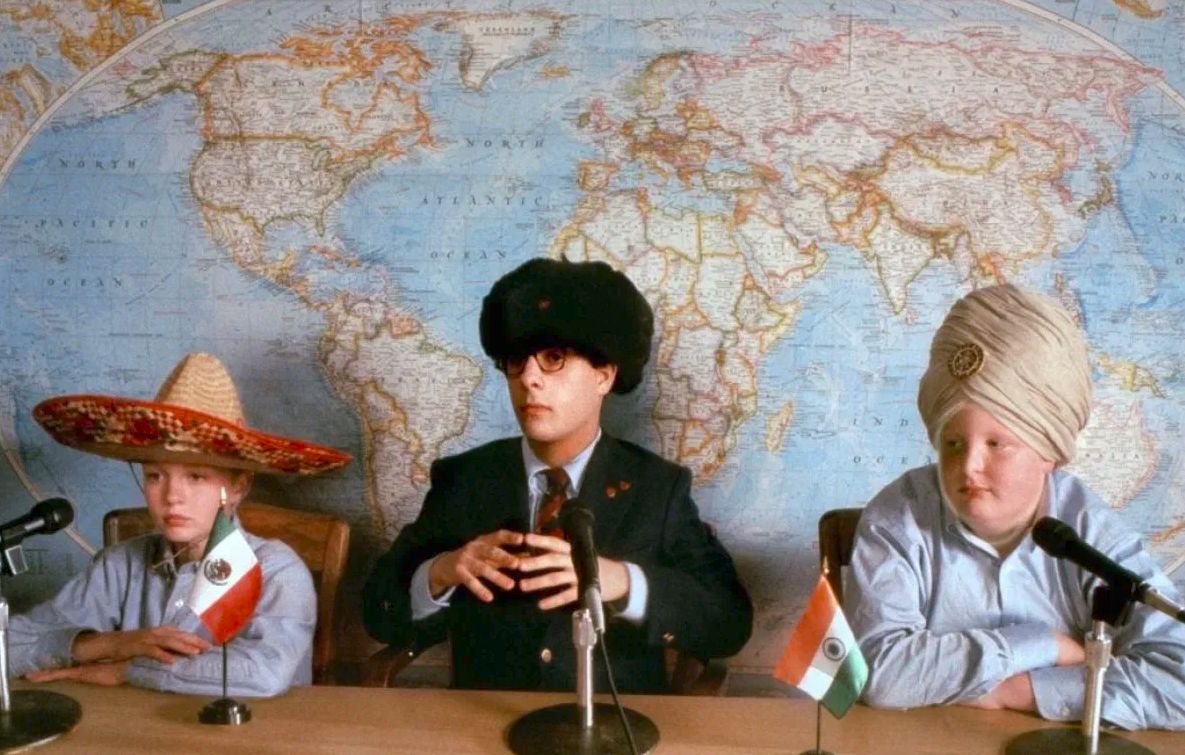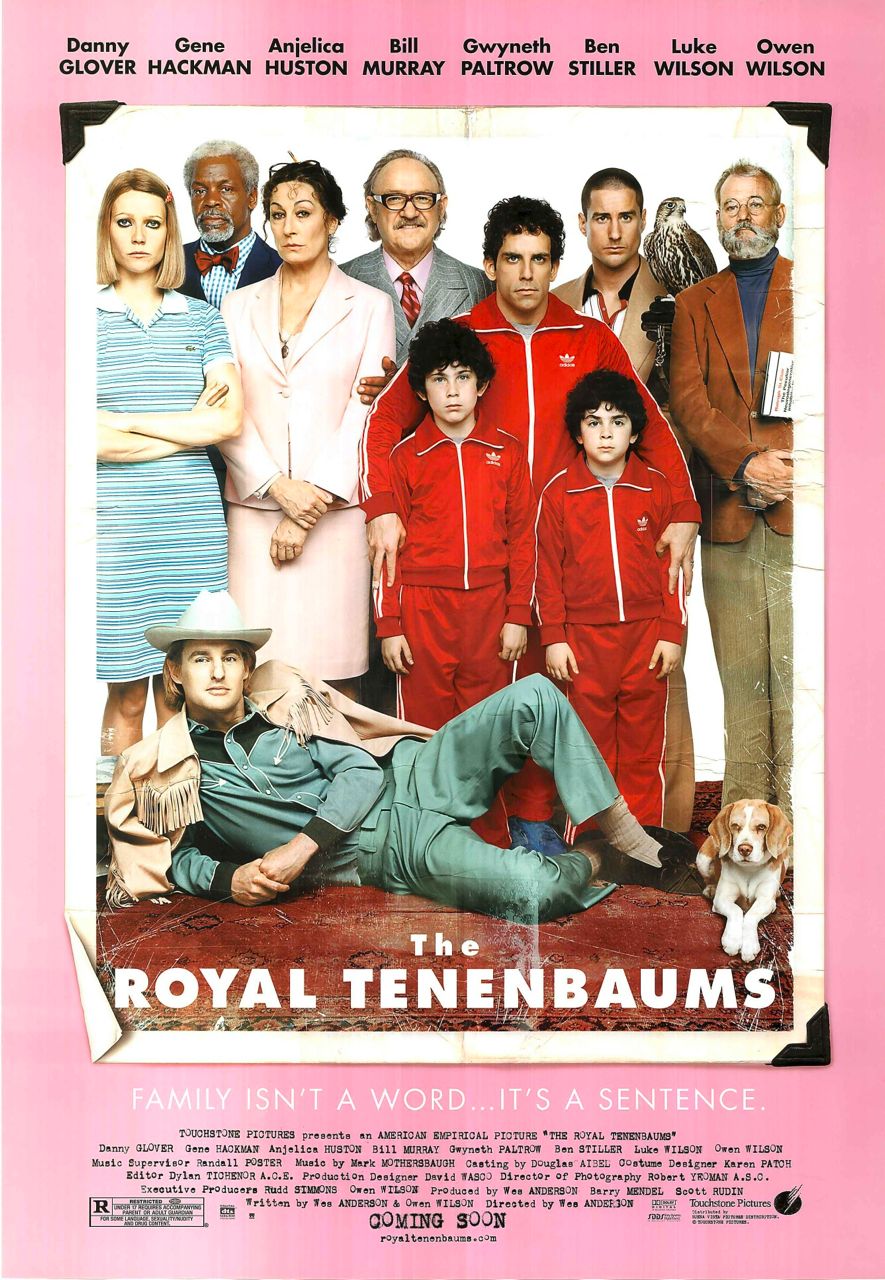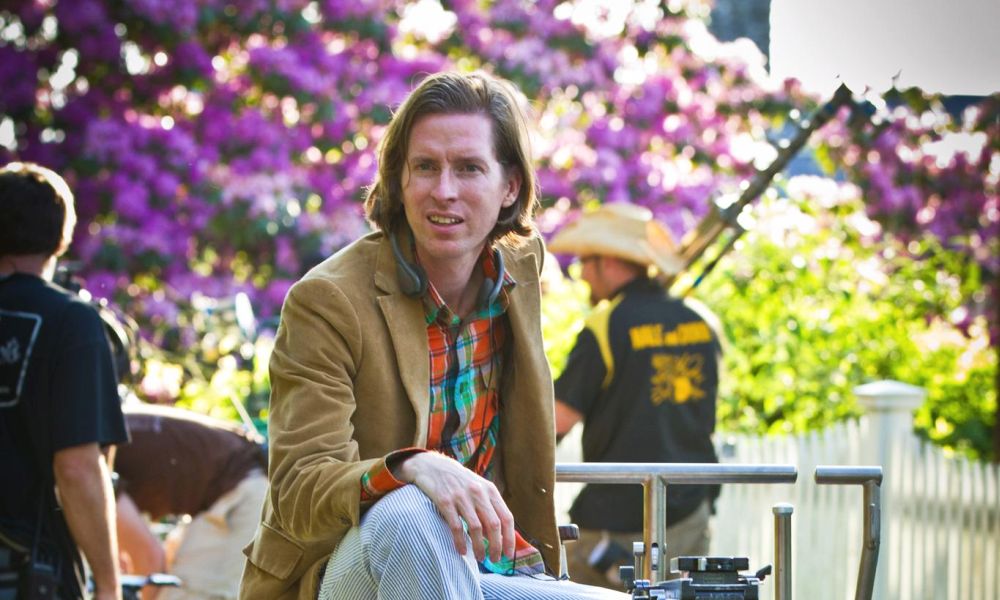"With a distinctive visual style that steers clear of the gross plagiarism of many post-Tarantino thirty-something directors, Anderson sets himself apart from most of his contemporaries. His work is as refreshing and visually inspiring as any Coen brothers' film and restores faith in the idea that Hollywood can still produce an idiosyncratic black comedy once in a while." - Peter Homden (Contemporary North American Film Directors, 2002)
Wes Anderson
Director / Screenwriter / Producer
(1969- ) Born May 1, Houston, Texas, USA
Top 250 Directors / 21st Century's Top 100 Directors
(1969- ) Born May 1, Houston, Texas, USA
Top 250 Directors / 21st Century's Top 100 Directors
Key Production Country: USA, Germany
Key Genres: Comedy, Drama, Romantic Comedy, Comedy Drama, Coming-of-Age, Animation, Romantic Drama, Romance
Key Collaborators: Robert Yeoman (Cinematographer), Scott Rudin (Producer), Bill Murray (Leading Character Actor), Jason Schwartzman (Leading Character Actor/Screenwriter), Owen Wilson (Character Actor/Screenwriter), Jeremy Dawson (Producer), Alexandre Desplat (Composer), Adam Stockhausen (Production Designer), Adrien Brody (Leading Character Actor), Mark Mothersbaugh (Composer), Tilda Swinton (Character Actress), Roman Coppola (Screenwriter)
Key Genres: Comedy, Drama, Romantic Comedy, Comedy Drama, Coming-of-Age, Animation, Romantic Drama, Romance
Key Collaborators: Robert Yeoman (Cinematographer), Scott Rudin (Producer), Bill Murray (Leading Character Actor), Jason Schwartzman (Leading Character Actor/Screenwriter), Owen Wilson (Character Actor/Screenwriter), Jeremy Dawson (Producer), Alexandre Desplat (Composer), Adam Stockhausen (Production Designer), Adrien Brody (Leading Character Actor), Mark Mothersbaugh (Composer), Tilda Swinton (Character Actress), Roman Coppola (Screenwriter)
"As a visual stylist, Anderson has gotten progressively more inventive with each film, to the extent that some critics faulted The Life Aquatic for neglecting character and plot in favor of elaborately staged set pieces. Although the low budget naturalism of Bottle Rocket showed Anderson’s eye for detail and his command of deadpan long shots, the vibrant color schemes, creative editing, and jangling soundtrack of Rushmore were a surprise. The Royal Tenenbaums and The Life Aquatic further developed those attributes, revealing a baroque Pop bent that is not realist, surrealist, or magic realist. If anything, it recalls the fabulism of Terry Gilliam." - Jesse Fox Mayshark (Post-Pop Cinema: The Search for Meaning in New American Film, 2007)
"Few directors' films deserve the term "character-driven" more than Anderson's. His films are also casting-, music-, mood- and even production design-driven (he works with more or less the same key production personnel every time), but whatever powers their engines, action and plot are but trace elements in the fuel." - Leslie Felperin (The Rough Guide to Film, 2007)
"King of literary geek chic on the silver screen, Wes Anderson emerged from the U.S. movie underground an almost ready-made savant. Remarkably quickly, his quirky, off-kilter films neatly established Anderson almost as a genre unto himself." - Joshua Klein (501 Movie Directors: A Comprehensive Guide to the Greatest Filmmakers, 2007)

Rushmore (1998)
"Houston native Wes Anderson’s idiosyncratic directorial style—marked by eccentric, colorful compositions and a fastidious attention to detail—seemed completely anomalous in the U.S. independent film landscape at the outset of his career. But it’s become such an influence on other homegrown auteurs that it’s beginning to look as archetypally American as apple pie." - The Criterion Collection
"Bolstered by the support of veteran director James L. Brooks and producer Polly Platt, Wes Anderson attained a status in the late 1990s that most young filmmakers only dream of achieving -- he proved that he could work within the Hollywood studio system and still create distinctive, willfully quirky films infused with an independent sensibility. Born and raised in Houston, Texas, Anderson was interested in filmmaking and performance from a young age, shooting crude Super-8 movies and staging elaborate school plays (including a hand-puppet adaptation of the 1980 Kenny Rogers vehicle The Gambler)." - Michael Hastings, Allmovie
"Let’s get this out of the way right from the top: Wes Anderson has never made a bad movie, and — in all likelihood — he probably never will. He’s too particular, too immaculate, too in command of his craft." - David Ehrlich (IndieWire, 2017)
"If his first two films and the one that followed in 2001, The Royal Tenenbaums, suggested the work of an extraordinarily sensitive and sophisticated hothouse talent, Anderson’s two subsequent films, The Life Aquatic with Steve Zissou (2004) and The Darjeeling Limited (2007)—both of which were shot on location, under challenging conditions, one at sea in a Second World War-era minesweeper and the other on a moving train in India—revealed a more intrepid aspect of his nature. In these movies, Anderson emerged as an heir to the likes of Ernest Hemingway and Howard Hawks, rugged adventurers whose daring exploits were matched by their dandyish style statements. " - Richard Brody (The New Yorker, 2009)
"The idea is to make this self-contained world that is the right place for the characters to live in, a place where you can accept their behaviour." - Wes Anderson
Selected Filmography
{{row.titlelong}}
GF Greatest Films ranking (★ Top 1000 ● Top 2500)
21C 21st Century ranking (☆ Top 1000)
T TSPDT R Jonathan Rosenbaum S Martin Scorsese
21C 21st Century ranking (☆ Top 1000)
T TSPDT R Jonathan Rosenbaum S Martin Scorsese
Wes Anderson / Favourite Films
David Golder (1931) Julien Duvivier, La Grande illusion (1937) Jean Renoir, It All Starts Today (1999) Bertrand Tavernier, Kings & Queen (2004) Arnaud Desplechin, Loulou (1980) Maurice Pialat, Madame de... (1953) Max Ophüls, The Man Who Loved Women (1977) François Truffaut, Olivier, Olivier (1991) Agnieszka Holland, Quai des Orfèvres (1947) Henri-Georges Clouzot, Vagabond (1985) Agnès Varda, Vivre sa vie (1962) Jean-Luc Godard.
Source: Sight & Sound (2022)
David Golder (1931) Julien Duvivier, La Grande illusion (1937) Jean Renoir, It All Starts Today (1999) Bertrand Tavernier, Kings & Queen (2004) Arnaud Desplechin, Loulou (1980) Maurice Pialat, Madame de... (1953) Max Ophüls, The Man Who Loved Women (1977) François Truffaut, Olivier, Olivier (1991) Agnieszka Holland, Quai des Orfèvres (1947) Henri-Georges Clouzot, Vagabond (1985) Agnès Varda, Vivre sa vie (1962) Jean-Luc Godard.
Source: Sight & Sound (2022)
Wes Anderson / Fan Club
Edgar Wright, Richard Brody, Glenn Kenny, Matt Zoller Seitz, Cameron Crowe, Kent Jones, Noel Murray, Josh Larsen, Michael Lindsay-Hogg, Ilya Naishuller, Alex Ross Perry, Jonathan Romney.
Edgar Wright, Richard Brody, Glenn Kenny, Matt Zoller Seitz, Cameron Crowe, Kent Jones, Noel Murray, Josh Larsen, Michael Lindsay-Hogg, Ilya Naishuller, Alex Ross Perry, Jonathan Romney.
"Fan Club"
These film critics/filmmakers have, on multiple occasions, selected this director’s work within film ballots/lists that they have submitted.
These film critics/filmmakers have, on multiple occasions, selected this director’s work within film ballots/lists that they have submitted.


